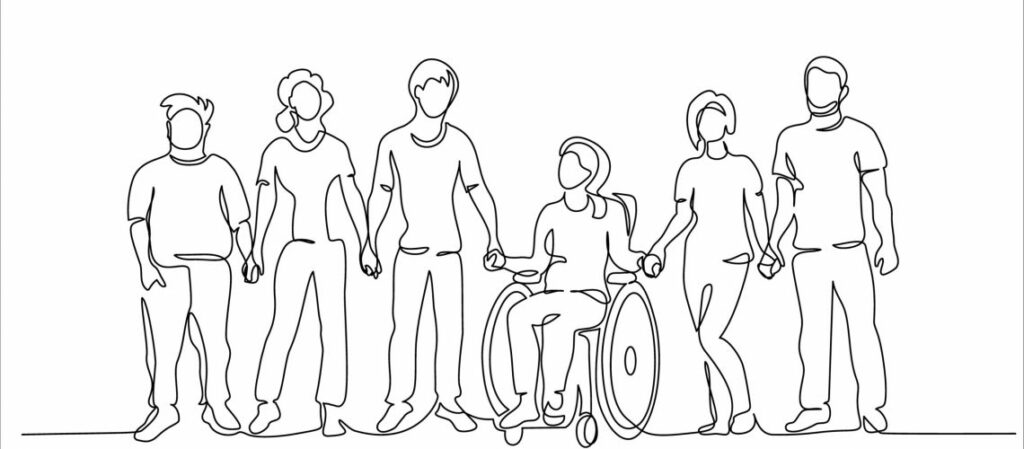
Ableism is a term that you have likely heard associated with the diversability (diverse ability) community. Technically, ableism is the discrimination of an individual or group based on a disability. For our purposes, though, it goes much deeper than that.
Exploring and understanding ableism can help you better avoid unintentional bias or ableist practices so you can be a better advocate and ally for the diversability community.Â
Different Types of Ableism
While some examples of ableism are outright discrimination, others can be more subtle. When people hear any term that denotes discrimination (racism, sexism, ableism), the first thing that usually comes to mind is exclusion or hateful speech.
These are certainly ways that people or businesses express ableism, but they are not the most common ways and certainly not the only ways. Two of the ways that we frequently see ableism are through ableist language and inaccessible design.Â
When it comes to ableist language, some of the most common expressions of this are using words like “dumb†or “retarded.†These are terms that people previously use to describe disabilities but are now synonymous with being “stupid†or unintelligent. Using this type of terminology can be hurtful to individuals with disabilities.Â
Inaccessible design is a common problem in many places of business. They may lack accessible parking spaces or only have steps and not a ramp. Accessible design is critical for people with disabilities to be able to go about their lives in a normal fashion.
How Ableism Affects Individuals with Disabilities
Studies show that ableism can have a severe impact on people living with disabilities. It can result in barriers to healthcare, difficulty accessing necessary services, and a decline in mental health as a result of feeling like they do not belong.
Ableist attitudes can also result in misinformation about the diversability community, making it difficult for people that are part of this community to find suitable jobs or receive a good and fair education.
Anti-Ableism Practices in the Workplace
Ableism in the workplace is not only frowned upon morally but is also illegal. The Americans with Disabilities Act (ADA) clearly states that businesses cannot discriminate against people with disabilities.Â
There are a few things that you can do to foster anti-ableism in the workplace:
- Provide education on disabilities for all employees
- Provide reasonable accommodations quickly
- Challenge people who make ableist statements in the workplace
- Ensure accessibility to technology and physical spaces alike
Despite common belief, many individuals with disabilities are perfectly capable of working and actively apply for positions that suit them well. They can bring a unique perspective into your organization, helping to improve practices and giving everyone a new way of looking at things.Â
If your organization is looking to implement more anti-ableism practices and improve accessibility, Applied Development can help. The experts on our team have experience helping organizations of all sizes to plan and execute better disability policies.Â
Give us a call today or contact us online for more information.
